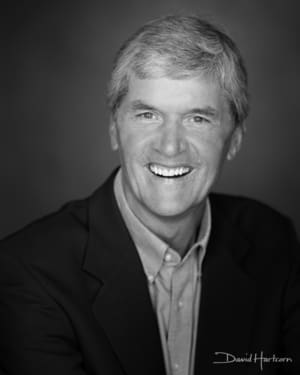“Math can do anything.”
My father earned a doctorate in applied mathematics and industrial engineering. I got none of his DNA. He was brilliant. He knew how to build patios, porches and cottages. He understood how to wire a house for electricity and install plumbing. I was lucky to drive a nail straight. In fact, I looked a great deal like the postman.
Just kidding.
Growing up, it was difficult to engage this man who was called “Socrates” by his students and saw every problem as a mathematical equation to be solved or engineering feat to be performed. If I spoke to him about religion, he thought it was soft and sweet, like candy. Since he was a towering figure in my life, I tended to cower and slink away. It wasn’t until we read a book together that I stiffened the “soft” side of life a bit.
A few years before he passed away, I gave my father The Metaphysical Club, by Louis Menand. I like to read, and my dad did, too. His reading material was mostly Scientific American and the like. Mine was The Atlantic and The New Yorker. He read the “hard” stuff. Mine was “soft.” The Metaphysical Club stiffened his view of religion . . . just a bit.
The book considers the influence of Auguste Comte, who founded the school of thought known as positivism. Comte maintained that history progresses through stages of positive improvements, the first being “theological.” The second stage is mockingly called the “metaphysical,” wherein theological definitions of reality are replaced by science. Comte believed that the nineteenth and twentieth centuries would be a period of moving past the second stage toward the third-and final-stage, which he called the “positivist.” This was the highest achievement in human thinking—a period in which science is the only language all human beings share.
This third stage treats math as “hard.” It views the code and culture and ethics as “soft.” This might explain a 2008 IBM television ad: “Math is the only language all human beings share. Math can do anything.” Really?
My father and I would have never heard of Comte were it not for a network of individuals and institutions that took his ideas seriously. Chauncey Wright advanced the philosophy of positivism, influencing the likes of Oliver Wendell Holmes, William James and Charles S. Peirce. This elite group changed the institutions of jurisprudence, philosophy, literature and education in the nineteenth century through an informal network that met in Cambridge, Massachusetts, in 1872. They derisively called it the Metaphysical Club.
The key was Wright’s insistence that “positivism was, at bottom, an absolute distinction between facts and values. Fact was the province of science and value was the province of what he called, always a little deprecatingly, metaphysics,” Menand notes. Wright didn’t condemn a moral code—it simply couldn’t solve problems because moral codes were now considered subjective and unreliable. “He just thought they should never be confused with science.” This was fairly illuminating for my dad.
We began to wonder: if math is the only language all human beings share, why did we get upset when Hitler did the math and switched from bullets to gas chambers—a cheaper final solution? Mao did the math and figured it was more economically expedient to exterminate seventy million of his countrymen. If math is our only language, why are people livid toward Bernard Madoff?
Math doesn’t make you mad, but a breach in a moral code does. People believe Madoff ought to have acted in a certain way. Ought is the opening act of a shared human drama known on the street as ought-is-can-will. All human beings share this moral language. In scripture, it’s known as creation-fall-redemption-restoration. After reading The Metaphysical Club, discussions with my dad changed a bit. We came to see that “math can do anything” is a bad philosophy.
C. S. Lewis believed that bad philosophy needed to be answered. “We need intimate knowledge of the past . . . something to set against the present, to remind us that the basic assumptions have been quite different in different periods. A man who has lived in many places is not likely to be deceived by the local errors of his native village . . . and is in some degree immune from the great cataract of nonsense that pours from the press.” Today’s business world—as well as the worlds of technology, education, law, and the arts—assumes that facts (such as math) make the world go around. Values are soft. This isn’t reality, however.
Of course, changing actual reality takes more than reading a book. It requires changing corporate cultures. Sociologist Peter L. Berger argues: “Ideas don’t succeed in history because of their inherent truthfulness, but rather because of their connection to very powerful institutions and interests.” In the world of business and commerce, too many organizations take too little interest and spare too little expense in “making culture.” They view “values” as a soft and squishy luxury. They aren’t deliberate about it. You can see this attitude reflected in how people view institutional “values statements.”
Before 1880, the noun “value” meant something similar to price or cost—what something was worth. The verb “value” meant to assess the worth of something. But Friedrich Nietzsche reframed the “values” as individual, moral beliefs and attitudes. People could reject the values of an institution or society and choose their own values if they had the “will to power.”
If values are intensely individual, then—at a minimum—we should be nonjudgmental about other people’s values. Such a purposeless view of values is why organizations fall back on silly slogans, “pumping people up” and yakking about “passion.” But as Robert Wuthnow of Princeton University points out, “Culture is not produced or sustained by dramatizing moral obligations; instead it is produced by actors who have special competencies and is perpetuated by organizations that in a sense process resources for the purpose of ritualizing, codifying, and transmitting cultural products.” Organizations that take a moral code seriously do not treat culture as candy.
Changing actual reality also requires disabusing ourselves (I’m talking to people of faith) of the notion that individuals and institutions change on the strength of ideas. Too often, good people of faith hold to a bad idea: we assume that history is little more than the recording of the rise and fall of the great ideas—the worldviews that form our values and move us to act. These people then take an individualistic approach to changing culture and assume an aggregate of passionate individuals with great ideas changes society—a “tipping point” approach. This is an incomplete understanding of how reality works, however.
We make our cultures, and then they make us. Culture matters. It’s not eye candy and posters. As James Davison Hunter, a cultural analyst, puts it: “Under specific conditions and circumstances ideas can have consequences.” Those conditions and circumstances constitute a company’s culture. It is ideas plus overlapping institutions. It is institutions—and the gatekeepers who run them—that have the power to prevent or permit individual actions.
My dad came to believe that a moral code and culture is not candy. Then he passed away. I wished we’d had more time to talk, but I also wish there had been more examples of companies and institutions that take morality seriously to which I could have pointed him. In reality, it is not individual hearts and minds that move cultures but cultures that ultimately shape and direct the lives of individuals. Robert Malott, former chairman of the FMC Corporation in Chicago, said after his retirement, “One can be thanked for successful events, but to be recognized for establishing a ‘corporate culture’ about which one can be proud is much more significant.” At least I had the opportunity to stiffen the “soft” side of my dad’s life.

